Joint statement welcoming CJEU judgment to halt unlawful gender title collection

The EU Court of Justice has judged that it is unlawful for France’s national railway company to force passengers to choose between ‘Mr’ and ‘Ms’ when purchasing train tickets.
Today, the CJEU issued a judgment in the case C-394/23 initiated by the Mousse Association, saying that it is unlawful for a railway company to collect a customer’s gender marker, saying this personal data is not necessary for the purchase of a train ticket and may create a risk of discrimination on grounds of gender identity.
The judgment concerns a case initiated by Mousse representing 64 individuals against France’s national state-owned railway company (SNCF) practice of forcing passengers to choose between the civil titles “Mr” or “Ms” when purchasing train tickets. The train company does not offer a third option and alleged that this data was necessary to personalise its commercial communication based on customers’ presumed gender identity.
The case relies on the General Data Protection Regulation (GDPR)’s principles of data minimisation and accuracy, as well as the fundamental EU law principle of non-discrimination.
The French court asked the CJEU to clarify if common practices in civil, commercial, and administrative communications can help determine whether data collection meets the GDPR’s requirements for being adequate, relevant, and necessary under Article 5(1)(c), and lawful under Article 6(1)(b) and (f). If so, collecting only customers’ titles like “Mr” or “Ms” might be considered necessary and compliant with the principle of data minimisation.
The CJEU was also asked whether the right of individuals to object to the use of their personal data by relying on their specific situation under Article 21 GDPR should be a determining factor in assessing the necessity of the mandatory data collection.
THE CJEU DECISION
The CJEU recalled that the principle of data minimisation requires that collected data be adequate, relevant and limited to what is necessary for the purposes for which those data are processed. The processing of personal data is lawful only if it is necessary for the performance of a contract or for the purposes of a legitimate interest
In this respect, the Court ruled that the personalisation of commercial communications based on presumed gender identity according to a customer civil title is not necessary as it is not objectively indispensable to the performance of a rail transport contract, contrary to what the SNCF and the French State alleged in this case. The Court stated that the railway company could opt for generic and inclusive terms, which are not linked to presumed gender identity, when addressing customers, as this would be a less intrusive solution.
Additionally, the Court rebutted SNCF’s argument that it pursued a “legitimate interest” as it did not comply with the conditions under GDPR to do so. Notably, collecting gender markers cannot be regarded as necessary when the fundamental freedoms and rights of customers prevail over the legitimate interest of data processors.
Importantly, the Court ruled that processing civil titles of customers can in some cases create a risk of discrimination on grounds of gender identity. This is the first time that the CJEU evokes the fundamental EU law principle of non-discrimination to protect the ground of gender identity for trans and non-binary people.
IMPACT
The importance of this judgement therefore extends beyond the applicant’s individual circumstances. All public and private organisations that are required to comply with GDPR in the EU will need to comply with this judgment and stop collecting gender markers when it is not strictly necessary in the light of the purposes for which this data is processed.
The judgment also underscores the broader issue faced by trans and non-binary people who are constantly forced to choose in their everyday lives between two options that do not correspond to their identity. Also, binary trans people, whose identity documents do not match their gender identity, will benefit from fewer mandatory forms asking for a gender marker, when it is not necessary to the service or contract at hand.
According to the EU Fundamental Rights Agency LGBTI survey 2023, almost two-thirds (64 per cent) of trans respondents felt discriminated against in the year before the survey, followed by more than half (51 per cent) of non-binary and gender-diverse respondents, where every second respondent experienced discrimination in the same period,. The survey also found that 15 per cent of non-binary and 35 per cent of trans people said they experienced discrimination when they had to show their ID. In contrast, only one per cent of cisgender endosex respondents reported such issues. Non-binary people make up the largest compound (65 per cent) of the trans community and tend to be younger.
REACTIONS
According to the claimant’s legal representative, Etienne Deshoulières: “The CJEU’s decision marks a significant shift in the relationship between the State and citizens. Previously, the State “owned” the data in civil-status records and prohibited people from modifying that data, except in exceptional circumstances. Now, each citizen “owns” their personal data and grants the State permission to process it within the limits set by the GDPR, including the principles of minimisation and accuracy. The binary distinction of gender under the law has long been the cornerstone of the system that discriminates against sexual and gender minorities. If this legal binary no longer exists, then a broad array of legal discriminations disappears. It would represent the culmination of decades of advocacy for LGBT+ rights.”
TGEU Expert Advisor, Richard Köhler, comments: “Sixty-five per cent of trans people in Europe identify as non-binary, a young and mobile group forced to navigate systems that don’t match their identity. This case signals progress: less paperwork, fewer binary boxes, and a future where EU law finally recognises and protects non-binary and trans lives. The next generation deserves nothing less.”
ILGA-Europe Senior Strategic Litigation Officer, Marie-Hélène Ludwig added: “Today’s ruling is crucial in putting an end to the discrimination on the grounds of gender identity faced by non-binary persons and all who do not identify within the gender binary, and who are forced to choose in their day-to-day lives between two options that do not correspond to their identity. This judgment will have far-reaching effects, as it clearly states that collecting gender markers when it is not strictly needed is not only unlawful but also potentially discriminatory. The judgement clearly sets an obligation for all businesses, organisations and public services to do away with unnecessary binary data collection, according to EU law.”
ILGA-Europe and TGEU provided support to Association Mousse and its lawyers, Etienne Deshoulières from Deshoulières Avocats and Johan Heymans, Yasmina El Kaddouri and Delphine Holemans from VS Advocaten, in this case.
Read Association Mousse’s full statement here.
Joint statement: EU Court of Justice strengthens trans rights by calling for the automatic recognition in birth certificates
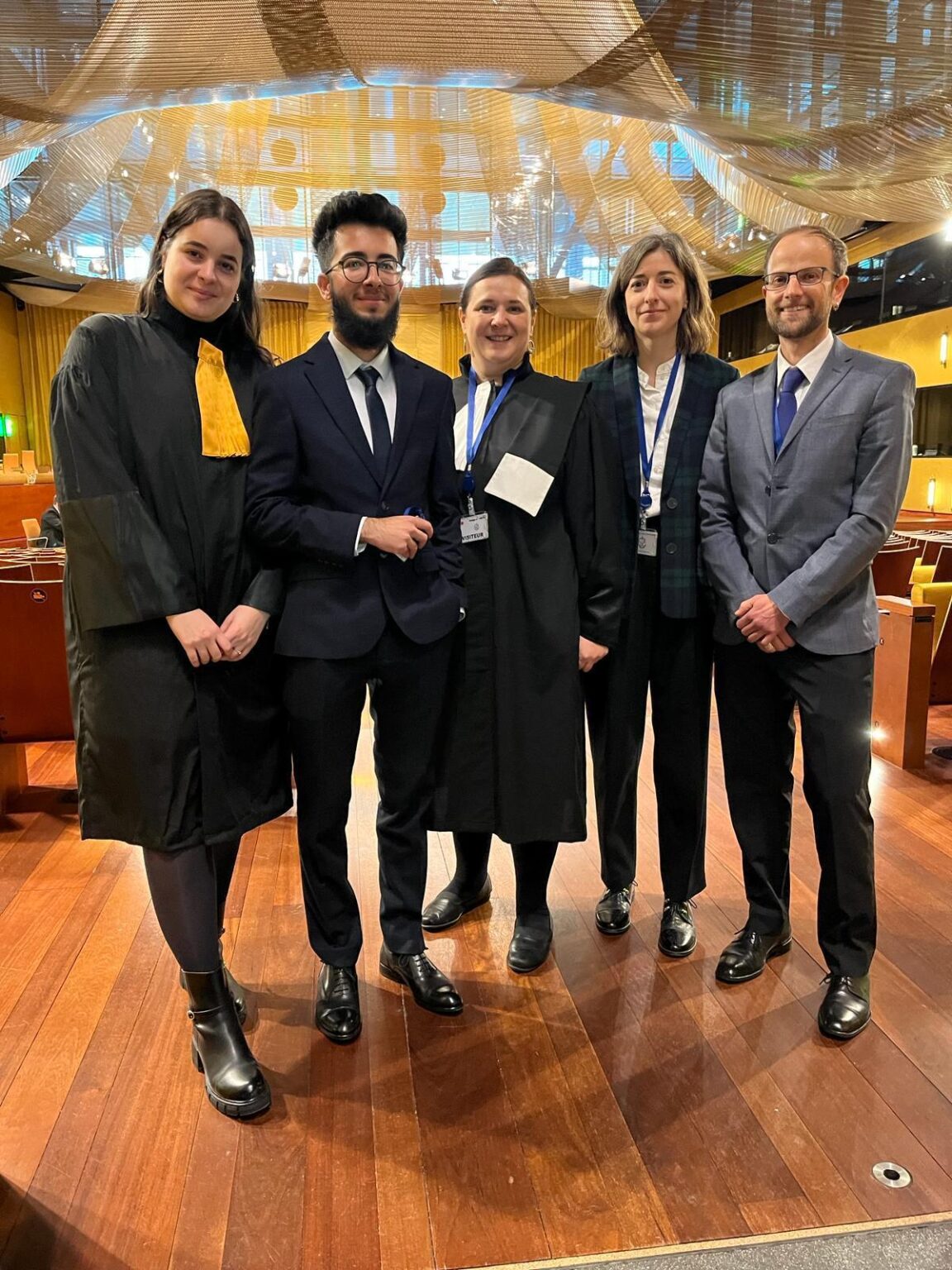
ACCEPT, TGEU and ILGA-Europe welcome today’s decision of the Court of Justice of the EU (CJEU) said that the refusal of an EU Member State to recognise changes of forename and gender acquired in another Member State is contrary to the rights of EU citizens.
The case C-4/23 Mirin concerns Arian Mirzarafie-Ahi, a Romanian trans man, with dual Romanian-British citizenship. Arian began the legal process to change his legal gender and name in 2017 and was granted a gender recognition certificate by UK authorities in 2020. At that time, the UK was in the Brexit transition period and still treated as a Member State of the EU. Subsequently, Romania refused to register the name and legal gender recognition of the applicant obtained in the UK and demanded that he go through Romania’s judicial legal gender recognition procedure. However, the European Court of Human Rights had already found that Romania does not have a procedure for change of name and gender marker that satisfies the standards of the European Convention of Human Rights (ECHR) of being quick, transparent and accessible.
The Romanian court asked the EU’s top court to clarify whether EU law required Romania to recognise another Member State’s decision acknowledging the name and gender marker of the applicant or if it could enforce its own procedures for legal gender recognition. In other areas of law, EU Member States commonly recognise each other’s decisions without further procedures. As such, this case marks a pivotal moment in addressing the mutual recognition of legal gender recognition decisions across EU Member States.
The CJEU Decision
The CJEU ruled in favour of Arian, stating that Romania must recognise the legal gender recognition granted in the UK. The Court emphasised that the refusal to acknowledge changes of forename and gender acquired in another Member State is contrary to the fundamental rights of EU citizens, particularly the principles of free movement and non-discrimination. The Court highlighted that mutual recognition of legal decisions among Member States is essential for upholding the rights of individuals within the EU, and that personal identity, including gender, is a fundamental element of one’s identity, protected under Article 7 of the Charter of Fundamental Rights and Article 8 of the European Convention on Human Rights. This landmark ruling reinforces the obligation of Member States to respect and recognise the legal gender identity of individuals as granted by other EU countries.
Impact
The importance of this judgement extends beyond the applicant’s individual circumstance, and underscores the broader issue faced by trans people whose legal gender recognition in one Member State is not acknowledged elsewhere in the EU, preventing them to travel freely, live, work or study across the EU, or even to vote, as any other citizen is able to. The judgement confirms the principle that rights legally obtained in one Member State must remain valid throughout the EU.
Reactions
According to Arian’s legal counsel, human rights lawyer Iustina Ionescu: “Today’s verdict has shown us that trans people are equal citizens of the European Union. When you have rebuilt a life in another part of the European Union because you are not welcome in your own country, it is normal to ask to be treated with dignity when interacting with the authorities in your home country. The fact that today the Court ruled on the mutual recognition of LGR decisions, no matter how different the procedures are in the Member States, should determine Romanian authorities to also adopt a fast, transparent and accessible national procedure, as requested by existing ECHR jurisprudence.”
TGEU Expert Advisor, Richard Köhler, said: “The CJEU’s ruling in the Mirin case is a monumental victory for trans people in Europe! Arian was forced to navigate a legal nightmare, facing the prospect of conflicting passports and demands for sterilisation to match his legal gender on Romanian and UK documents. Member States must recognise each other’s decisions—this is about equality and dignity. Romania, it’s time to act: Arian deserves his passport now, and the country needs a legal framework for recognising foreign gender identities.”
ILGA-Europe’s Senior Strategic Litigation, Marie-Hélène Ludwig added: “Today’s ruling confirms that without mutual recognition of legal gender recognition from one Member State to another, the right to freedom of movement and residence is not guaranteed for trans people in the EU. It is a great victory that shows the power of strategic litigation in the EU. This judgement will have an immensely positive impact, increasing legal protection for all trans people in the EU, all the more as certain EU countries like Romania still do not provide a legal framework for legal gender recognition conforming with European Court of Human Rights’ standards.”
Romanian NGO ACCEPT is a plaintiff in the case alongside Arian. TGEU and ILGA-Europe supported ACCEPT throughout the case, and joined Arian’s legal team at the Oral Hearing before the CJEU in January 2024.
European court hears landmark case on trans rights in Hungary
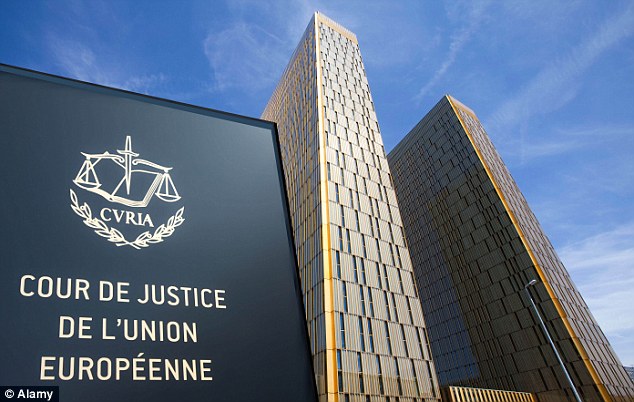
The Court of Justice of the European Union held a significant hearing today concerning legal gender recognition for trans people in Hungary
Today, the Court of Justice of the European Union (CJEU) heard the case Deldits (C-247/23), which involves a trans refugee in Hungary who has been denied legal gender recognition (LGR) since 2021. Represented by Háttér Society and the Hungarian Helsinki Committee, the complainant, who was granted refugee status Hungary in 2014, has sought judicial review under Article 16 of the EU’s General Data Protection Regulation (GDPR).
This case raises crucial questions for the CJEU: whether GDPR mandates the rectification of personal data, including gender marker, upon request; what evidence is necessary to support such requests; and whether medical or surgical interventions must be proven.
In addition to the European Commission and advocacy groups, the governments of Hungary, France, Spain and the Netherlands participated in today’s hearing, highlighting its broader implications for LGR in Hungary.
The Budapest-Capital Regional Court’s referral to the CJEU marks a pivotal moment in the ongoing battle for trans rights in Hungary. Despite the 2018 Constitutional Court decision and the 2020 European Court of Human Rights judgement affirming these rights, the Hungarian legislature has yet to implement necessary changes. LGR for both refugees and Hungarian citizens has been banned since 2020.
According to Katrin Hugendubel, Advocacy Director at ILGA-Europe: In its final judgment, the CJEU will have the opportunity to address the discrimination faced by trans EU citizens when a gender marker that does not correspond to their gender identity is recorded in the national registrars. The case is of the utmost importance to protect the rights of trans citizens in Hungary and across the EU, notably in the context of the Hungarian ban on legal gender recognition.
The opinion of the Advocate General is expected on 12 September 2024. The CJEU’s decision is anticipated later in the autumn, and it holds significant potential to influence the legal framework for trans rights within Hungary and the broader EU.
ILGA-Europe, alongside Transgender Europe (TGEU), are providing support to Háttér Society in this case.
Read the press release by Háttér Society here.
Monumental shift in global health for trans and gender diverse people
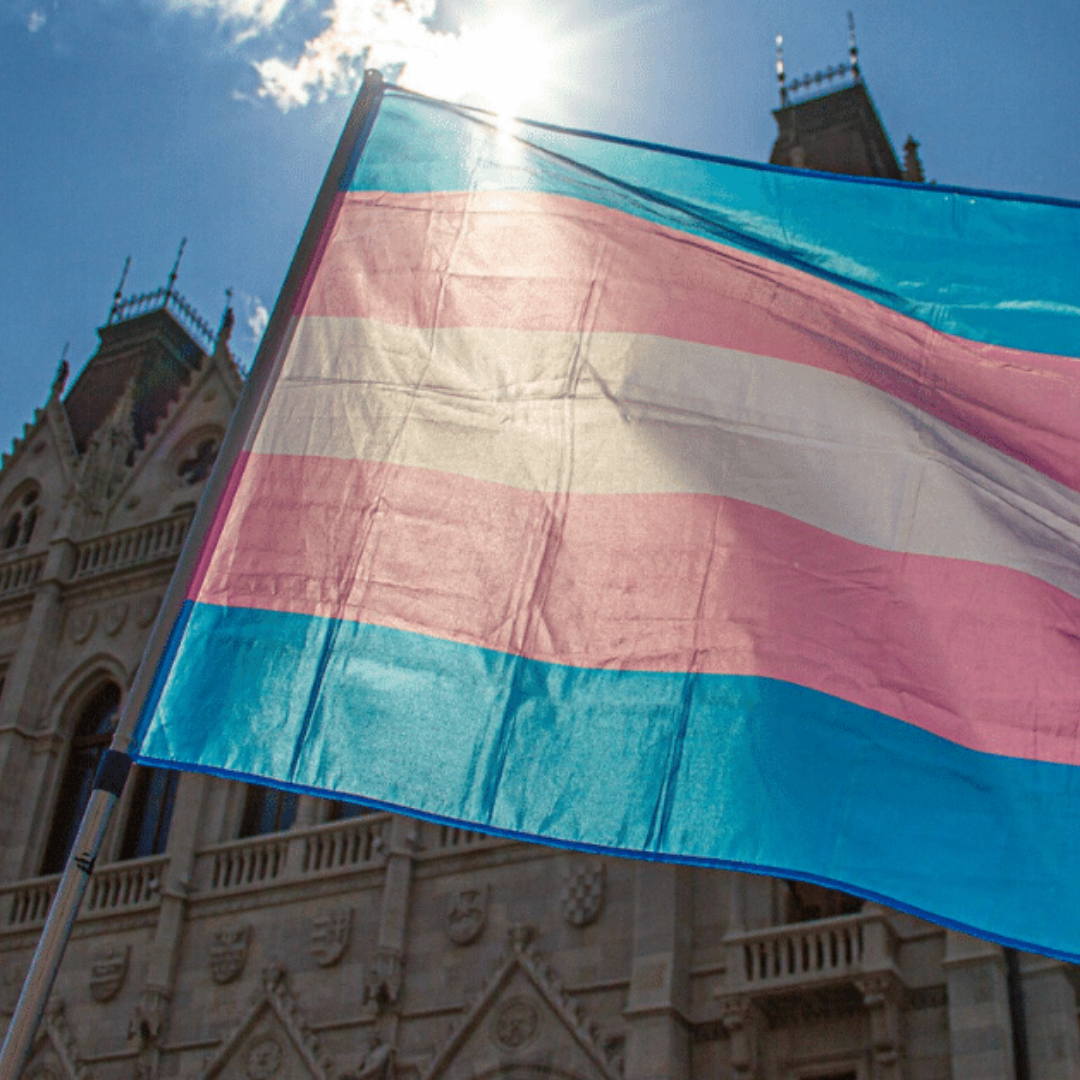
Today, after nearly a decade of efforts from trans and gender diverse activists and organisations, and their allies, the World Health Assembly approved the newest update to the International Classification of Diseases (11th Revision; ICD-11), which depsychopathologises (i.e. removes assertions of mental disease or disorder) trans and gender diverse people1).
Micah Grzywnowicz, Co-Chair of the Executive Board of ILGA-Europe, says, “ICD-11 represents a monumental shift in the global health for trans and gender diverse people. In previous revisions of ICD from the time that trans-related diagnoses were added in 1965 (8th Revision), these diagnoses were listed as either ‘Sexual deviations’ or ‘Mental and behavioural disorders’. The 11th revision accomplishes several steps at once, including the depsychopathologisation of trans and gender diverse identities.”
Firstly, the old diagnoses, predicated on the understanding that trans identities were mental disorders in themselves, have been deleted entirely. This is extremely important, as both the old category names and their corresponding content represent a history laden with struggle, oppression, forced medicalisation, stigma, and marginalisation experienced by trans and gender diverse people in the context of healthcare.
Second, a new chapter in the 11th Revision, “Conditions related to sexual health”, includes new trans-related diagnoses, as well as codes related to sexual and reproductive health. The new chapter is non-pathologising (i.e. it does not label its categories as “disorders” automatically). This new classification approach indicates a belief from the World Health Organisation that trans and gender diverse people are not inherently “disordered”, nor that their identities as such are related to their mental wellness.
Finally, the new categories, collectively “Gender incongruence”, are defined in ways that do not imply that the assignment of this category corresponds with a disease or a disorder. These new categories can only be assigned when the trans or gender diverse person themselves indicates distress with their body (also known as dysphoria) and are in need of medical interventions such as hormones, laser hair removal, or surgeries to address these feelings.
There is, however, a very long way to go on several fronts2. Most alarmingly, as Dan Christian Ghattas, Executive Director of OII Europe notes, “ICD-11 cements the pathologistion of intersex people by introducing harmful language such as ‘disorders of sex development’, incorporating supporting and explanatory materials that are associated with human rights violations, and failing to take steps to address or eliminate human rights violations against intersex people in medical settings.” See the ICD-11 press release jointly prepared by intersex organisations worldwide for more information.
Additionally, ICD-11 introduces a problematic code: “Gender incongruence in childhood”. Trans and gender diverse children who have not yet experienced the onset of puberty do not need medical interventions, but instead only love, support, information, and access to counselling. The category instead serves to pathologise gender curiousity, creativity, and exploration in children.
Finally, the global approval of ICD-11 represents just one step in a list of many, the next of which is national-level implementation of the Revision. National-level policymakers and stakeholders must work together to ensure the full implementation of the 11th Revision and full coverage of all medical procedures associated with the new categories within health insurance systems.
1. ICD-11 was announced by the WHO Executive Board in June 2018, but still needed to be ratified by the Assembly to go into force.
2. For detailed information on next steps, please refer to the work of the global coordinating group on depathologisation, hosted by GATE.
Swiss Senate votes to improve protection on grounds of sexual orientation but not gender identity
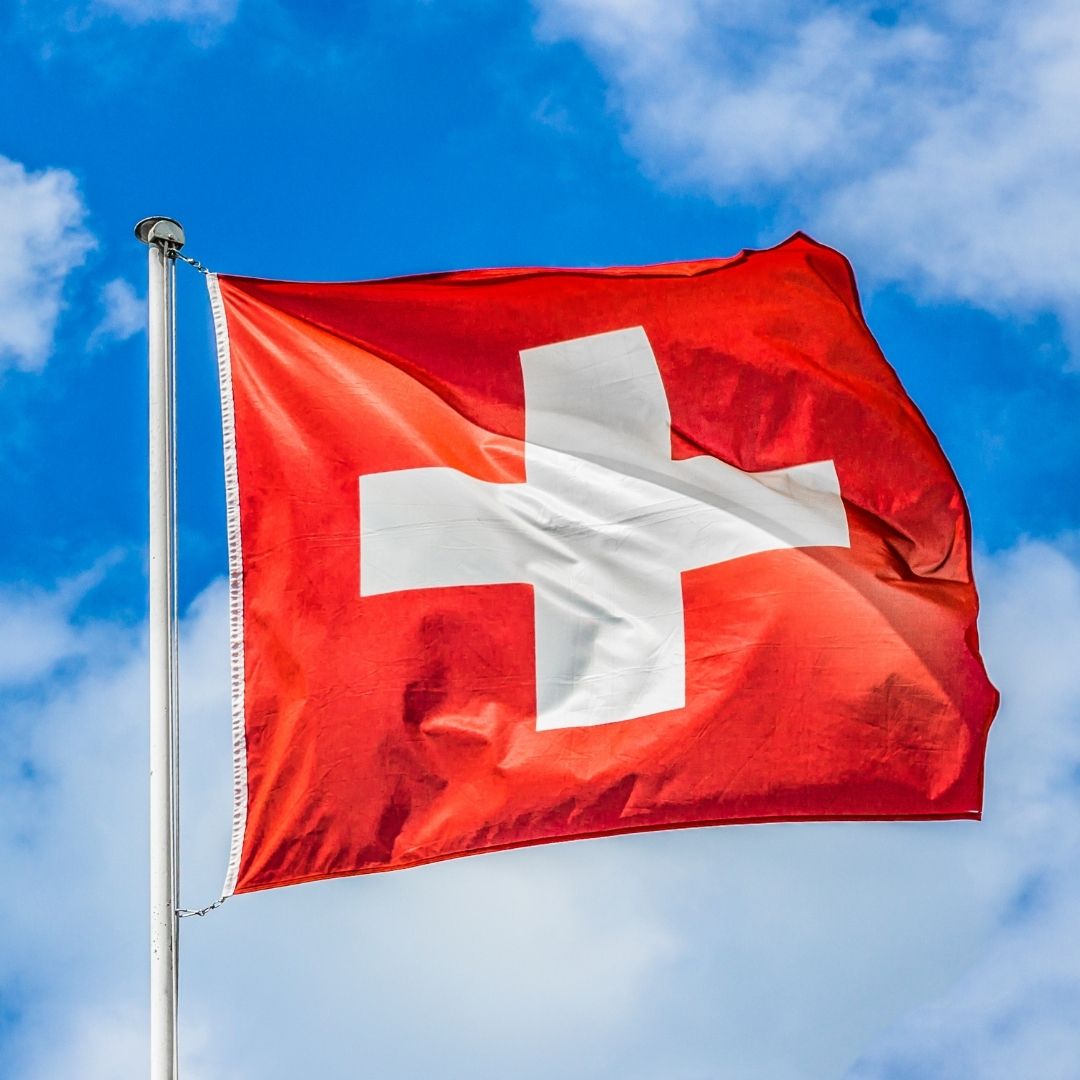
On 28 November 2018, the swiss Senate of voted to criminalise hate speech and discrimination on grounds of sexual orientation, but refused to do the same for grounds of gender identity.
ILGA-Europe welcomes the extension of protections against hate speech and discrimination based on sexual orientation – this is an important step forward for lesbian, gay and bisexual citizens of Switzerland. However, the decision of the Senate to explicitly exclude grounds of gender identity constitutes a denial of this protection for trans people, and sends the message that hate speech and discrimination against them is acceptable.
This news is especially disappointing as a few months ago the Swiss parliament had specifically and proactively proposed to include both sexual orientation and gender identity in the extension of the relevant article – which had until now explicitly covered only grounds of race, ethnicity and religion – and passed the inclusion of both grounds in parliament.
ILGA-Europe’s Rainbow Map shows that legislative and policy protection from discrimination and hate speech on grounds of sexual orientation has been improving across Europe. However, the same cannot be said for grounds of gender identity or expression, which are explicitly protected in just over a dozen countries. While some countries have merely not amended their laws in line with current international standards which provide for explicit protection from discrimination on grounds of gender identity as well as sexual orientation, the Swiss Senate has outright rejected current international standards to explicitly deny these protections for trans people.
ILGA-Europe expresses deep concern for this denial of the human rights of trans people. We call on the Swiss authorities to amend relevant laws to include protection on grounds of gender identity and also sex characteristics, thus bringing its legislation in line with international standards and ensuring protection from hate against trans and intersex people.
Non-binary gender registration models in Europe
The aim of this report is to provide an overview of the different legal gender registration models which somehow cause a break in the static registration of gender as binary, and recognize gender identities as considerably more diverse as is understood under the auspices of the two categories, namely women and men.
It focuses on the legalistic and bureaucratic aspects of implementing these models in order to provide a clear picture how states can avoid unintended consequences when introducing non-binary gender categories, or, conversely, no longer registering gender for various purposes.
The report provides some stance into how non-binary gender registration models affect the human rights, the well-being and social acceptance of non-binary persons. Yet, in order to obtain further conclusive knowledge regarding this topic, more far-reaching qualitative research is necessary.
Since this report serves as a background study for the development of its own policy regarding non-binary gender registration models by ILGA-Europe, it concentrates on possible developments in member states of the Council of Europe (CoE). Nonetheless, it also discusses examples from other regions in order to determine possible best practices and lessons-learned for the European framework.
A missed opportunity to recognise self-determination in Germany

On 15 August, the Federal Government of germany adopted a draft bill on a third gender option. This bill is a missed opportunity to recognise the right to self-determination of trans, intersex and all gender-diverse people.
German legislators were requested by the Constitutional Court, following its decision of October 2017, to amend the law on gender registration. The Court provided two possible scenarios: either the Government introduces a “third” non-binary legal gender category or it abolishes the registration of gender altogether. The mandate for drafting the German personal status law amendment lies with the Ministry of Interior, currently led by Horst Seehofer, who is one of the leadings politicians of the conservative party Christian Social Union in Bavaria (CSU).
In June, an early draft of the law was sent to main organizations working on trans and inter issues in order to receive a statement about the draft by July. The two main worrying elements were that the introduction of a “third” gender category was limited to people who present a medical certificate confirming “Differences of Sexual Development“ and that this new gender category would be named “weiteres”, which translates into “other” in English. The draft released on 15 August has improved at least on one of those two points, as it now refers to “diverse” for the name of this new category instead of “other”. However, the third gender category is still only reserved for a specific group of intersex people who can provide a specific medical certificate on “Differences of Sexual Development“.
It means that we are still very far from the introduction of a non-binary legal gender category open for all non-binary persons on the basis of self-determination, which is what the German institute of Human Rights had proposed after consulting trans and intersex groups. We’re also very far from the spirit of the Constitutional Court decision, which explicitly declares that the German Constitution protects the fundamental rights of persons identifying neither female nor male.
The law must now be adopted by the Bundestag and the Bundesrat before entering into force. We call on the Members of the Parliament to amend this draft bill so that it fully respects the fundamental rights of people who would like to make use of this law. We also call on the Government to as soon as possible prohibit unnecessary medical treatments on intersex children and to propose a revision of the current law on legal gender recognition, to bring it in line with the current human rights standards.
Solmaz v. Turkey
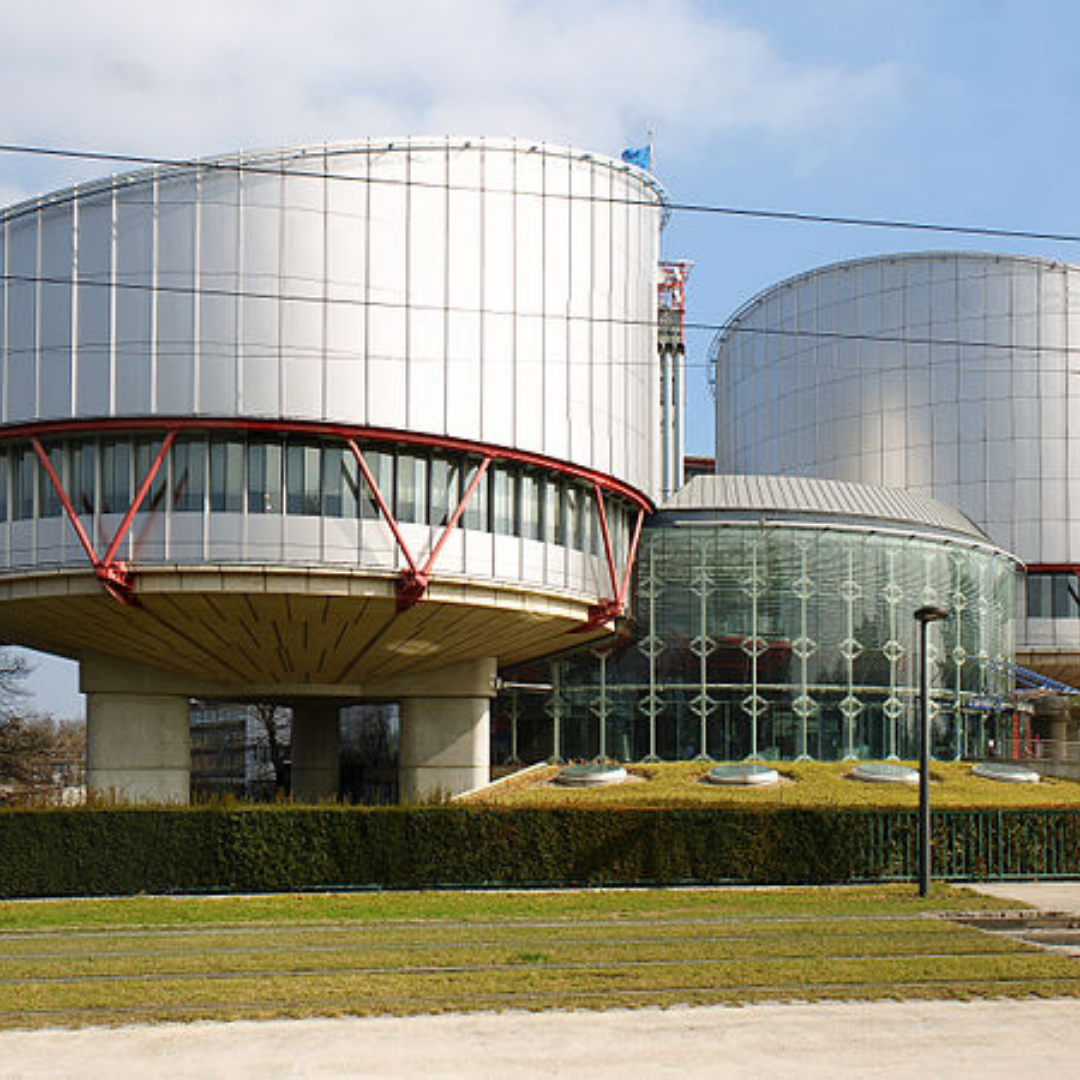
Discrimination on the ground of gender identity
(Application no. 49373/17), 13 February 2018
Find here the communicated case.
- The applicant was taken out of a bar allegedly on account of her appearance and gender identity. Subsequently, she lodged a criminal complaint against the owner of the bar. The Turkish courts considered it had not been proven that the accused’s act had been based on discriminatory motives.
- ILGA-Europe together with TGEU and Kaos Gay Lesbian Cultural Research and Solidarity Association (Kaos GL) submitted the following:
- According to Fundamental Rights Agency survey from 2015, discrimination on the grounds of gender identity was regarded as one of the most widespread forms of discrimination in Europe. It affects notably access to services, employment or health.
- Gender identity emerges as a protected ground under international anti-discrimination law. UN Treaty Bodies and regional human rights systems consistently mention gender identity among the protected characteristics of anti-discrimination clauses. The same approach is followed through legislation or court practice in numerous European and other democratic societies. Gender identity is protected under Article 14, although the language used by the Court to date has been inconsistent. This area of jurisprudence would benefit from some clarity.
- In Turkish law, discrimination in different fields is prohibited in different regulations and seen as a violation of rights. However, ‘sexual orientation’ and ‘gender identity’ are not explicitly protected in anti-discrimination law, leaving LGBTI people outside the scope of relevant legislation.
Human Rights and Gender Identity: Best Practice Catalogue
Human Rights and Gender Identity: Best Practice Catalogue is a civil society follow-up to the pioneering work of the Council of Europe Commissioner for Human Rights, Thomas Hammarberg, and his 2009 Issue Paper entitled Human Rights and Gender Identity.
Forced Out: LGBT People in Georgia
This joint ILGA-Europe and COC report is the first of its kind to be published about same-sex relationships and LGBT people in Georgia. It explores identities, common human rights violations, the landscape of LGBT organising, health and HIV/AIDS, and relevant legal aspects. It also provides recommendations to the Georgian government, donors, LGBT activists and international organisations.
A high level of hostility towards same-sex relationships and diverse gender identities prevails in virtually every aspect of Georgian society. Many believe them to be a disease, some see them as a sin, others as a perversion. Human rights of lesbian, gay, bisexual and transgender (LGBT) people are opposed by some prominent human rights defenders and other high-level figures.
Stigmatisation is so pervasive that most LGBT people are forced out of communities, deprived of any chance to openly express their sexual orientation or gender identity, and suffer from discrimination and hate crimes. And yet they are forced to come out and organise into associations and groups if they want to be able to stand up for who they are.
Forced Out: LGBT People in Azerbaijan
This joint ILGA-Europe and COC report is the first of its kind to be published about same-sex relationships and LGBT people in Azerbaijan. It explores identities, common human rights violations, the landscape of LGBT organising, health and HIV/AIDS, and relevant legal aspects. It also provides recommendations to the Azerbaijani government, donors, LGBT activists and international organisations.
Lesbian, gay, bisexual and transgender people are not invisible in the predominantly Muslim Azerbaijani society. Tens of transgender sex workers go into the main street of the capital city Baku every night, prominent showbiz figures barely hide their sexual orientation, mass media gives more space every day to the subject of sexual orientation and gender identities. And yet one should not be misled by this relative visibility: there is a price of estrangement from family, bullying, social exclusion, discrimination, blackmailing and hate crimes attached to it.